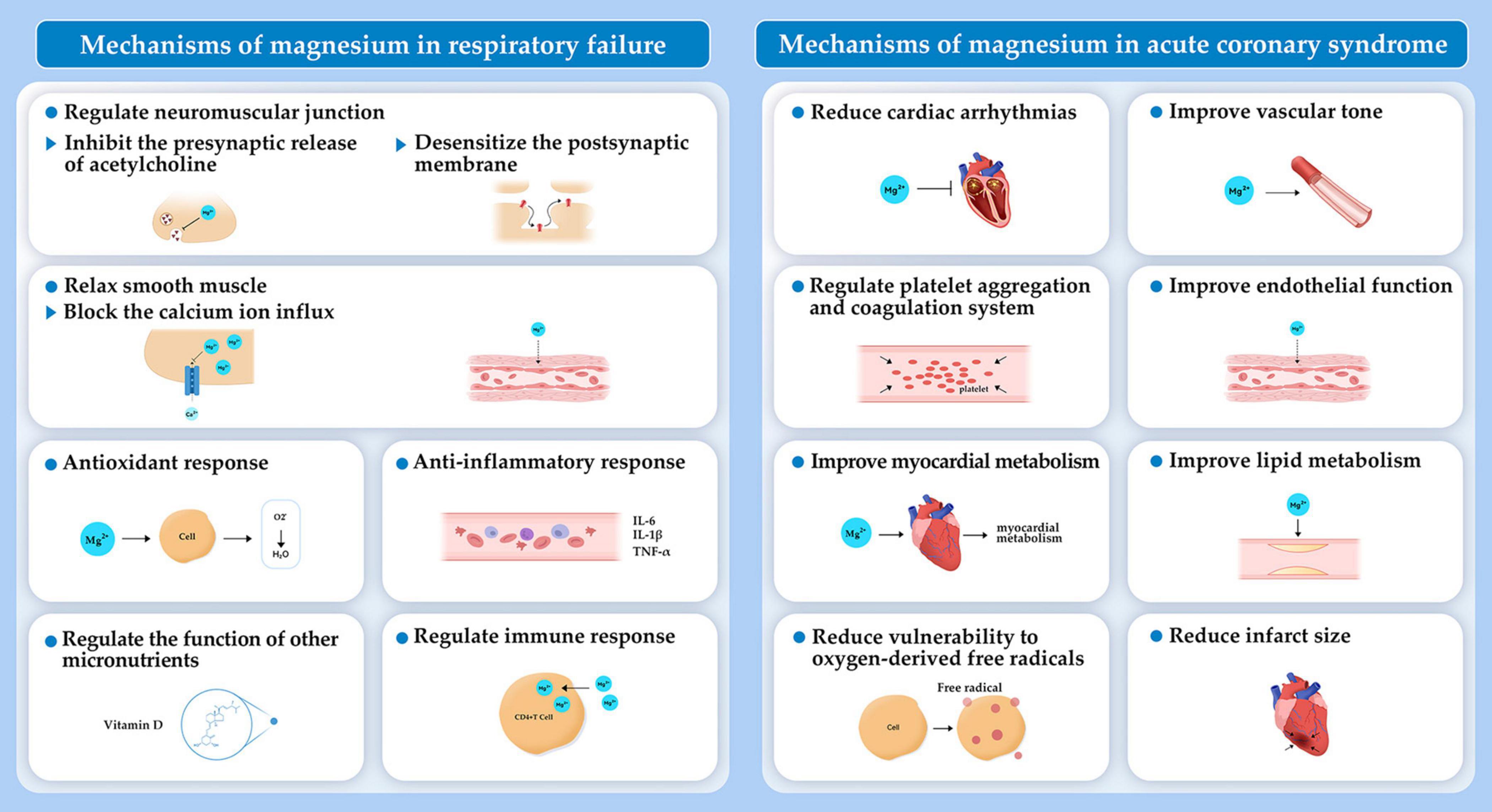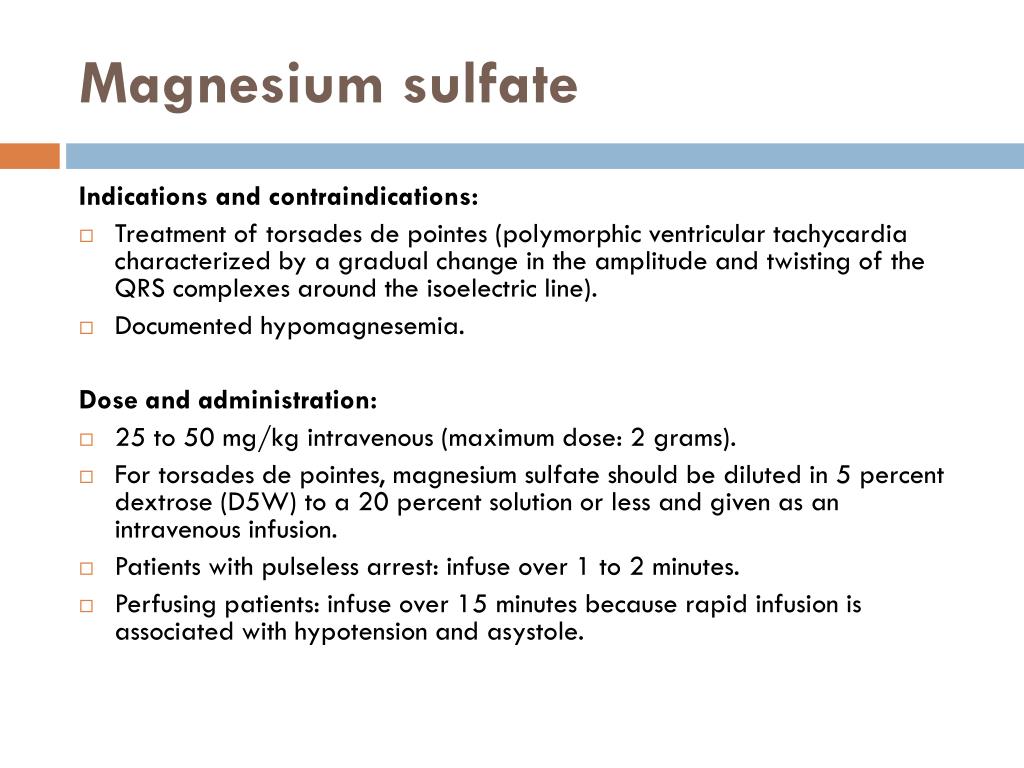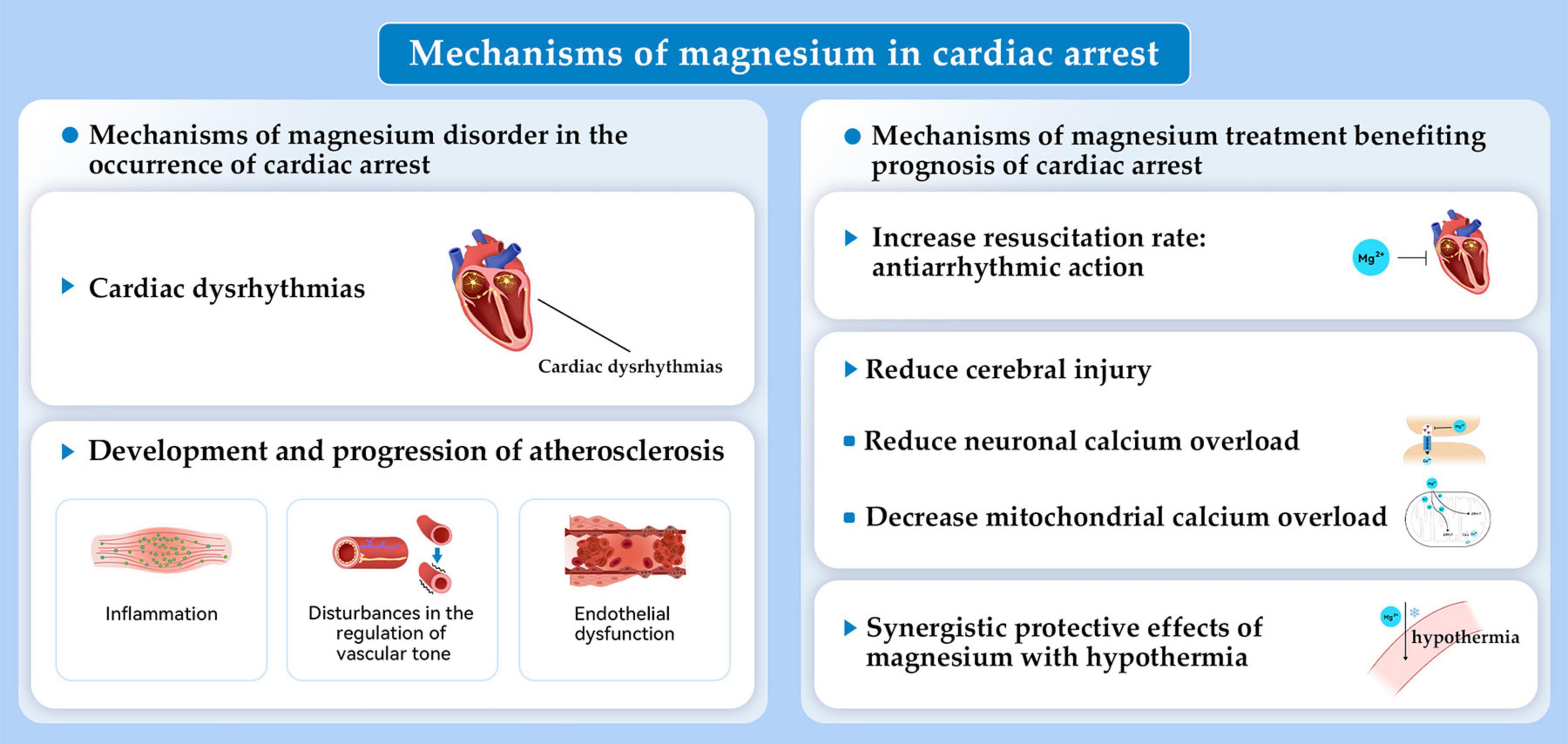What Is The Indication Of Magnesium In Cardiac Arrest - Here, we summarize studies on magnesium and the prognosis of cardiac arrest in basic studies, clinical studies, and the combined effect of. Indications for use of magnesium sulfate: Magnesium sulfate is effective as an anticonvulsant and an antiarrhythmic. A patient with possible stemi has ongoing chest discomfort. Adequate magnesium intake has been associated with reduced risks of cardiac events and improved management of cardiac arrest. High quality cpr should be at a rate of how many chest compressions per minute.
Adequate magnesium intake has been associated with reduced risks of cardiac events and improved management of cardiac arrest. Indications for use of magnesium sulfate: Here, we summarize studies on magnesium and the prognosis of cardiac arrest in basic studies, clinical studies, and the combined effect of. A patient with possible stemi has ongoing chest discomfort. Magnesium sulfate is effective as an anticonvulsant and an antiarrhythmic. High quality cpr should be at a rate of how many chest compressions per minute.
A patient with possible stemi has ongoing chest discomfort. Indications for use of magnesium sulfate: High quality cpr should be at a rate of how many chest compressions per minute. Here, we summarize studies on magnesium and the prognosis of cardiac arrest in basic studies, clinical studies, and the combined effect of. Adequate magnesium intake has been associated with reduced risks of cardiac events and improved management of cardiac arrest. Magnesium sulfate is effective as an anticonvulsant and an antiarrhythmic.
CPR. CPR Z.TOTONCHI.MD CARDIAC ANESTHETIST Circulation 2010 Z.TOTONCHI
Magnesium sulfate is effective as an anticonvulsant and an antiarrhythmic. High quality cpr should be at a rate of how many chest compressions per minute. Adequate magnesium intake has been associated with reduced risks of cardiac events and improved management of cardiac arrest. A patient with possible stemi has ongoing chest discomfort. Here, we summarize studies on magnesium and the.
Part 7.2 Management of Cardiac Arrest Circulation
Adequate magnesium intake has been associated with reduced risks of cardiac events and improved management of cardiac arrest. Indications for use of magnesium sulfate: High quality cpr should be at a rate of how many chest compressions per minute. Magnesium sulfate is effective as an anticonvulsant and an antiarrhythmic. A patient with possible stemi has ongoing chest discomfort.
Frontiers The role of magnesium in cardiac arrest
High quality cpr should be at a rate of how many chest compressions per minute. A patient with possible stemi has ongoing chest discomfort. Magnesium sulfate is effective as an anticonvulsant and an antiarrhythmic. Adequate magnesium intake has been associated with reduced risks of cardiac events and improved management of cardiac arrest. Here, we summarize studies on magnesium and the.
Table 2 from Important Changes in the ACLS 2000 Guidelines for the
A patient with possible stemi has ongoing chest discomfort. Here, we summarize studies on magnesium and the prognosis of cardiac arrest in basic studies, clinical studies, and the combined effect of. Adequate magnesium intake has been associated with reduced risks of cardiac events and improved management of cardiac arrest. High quality cpr should be at a rate of how many.
Impact of IM MgSO4 on postcardiac arrest A IM MgSO4
A patient with possible stemi has ongoing chest discomfort. Here, we summarize studies on magnesium and the prognosis of cardiac arrest in basic studies, clinical studies, and the combined effect of. Adequate magnesium intake has been associated with reduced risks of cardiac events and improved management of cardiac arrest. Magnesium sulfate is effective as an anticonvulsant and an antiarrhythmic. Indications.
magnesium cardiac arrest
A patient with possible stemi has ongoing chest discomfort. Indications for use of magnesium sulfate: Magnesium sulfate is effective as an anticonvulsant and an antiarrhythmic. Here, we summarize studies on magnesium and the prognosis of cardiac arrest in basic studies, clinical studies, and the combined effect of. High quality cpr should be at a rate of how many chest compressions.
Acls medications
Adequate magnesium intake has been associated with reduced risks of cardiac events and improved management of cardiac arrest. Here, we summarize studies on magnesium and the prognosis of cardiac arrest in basic studies, clinical studies, and the combined effect of. Magnesium sulfate is effective as an anticonvulsant and an antiarrhythmic. High quality cpr should be at a rate of how.
PPT CODE BLUE PowerPoint Presentation, free download ID2244654
Here, we summarize studies on magnesium and the prognosis of cardiac arrest in basic studies, clinical studies, and the combined effect of. High quality cpr should be at a rate of how many chest compressions per minute. Adequate magnesium intake has been associated with reduced risks of cardiac events and improved management of cardiac arrest. Indications for use of magnesium.
Frontiers The role of magnesium in cardiac arrest
Magnesium sulfate is effective as an anticonvulsant and an antiarrhythmic. Adequate magnesium intake has been associated with reduced risks of cardiac events and improved management of cardiac arrest. Here, we summarize studies on magnesium and the prognosis of cardiac arrest in basic studies, clinical studies, and the combined effect of. Indications for use of magnesium sulfate: A patient with possible.
magnesium cardiac arrest
High quality cpr should be at a rate of how many chest compressions per minute. A patient with possible stemi has ongoing chest discomfort. Here, we summarize studies on magnesium and the prognosis of cardiac arrest in basic studies, clinical studies, and the combined effect of. Magnesium sulfate is effective as an anticonvulsant and an antiarrhythmic. Indications for use of.
High Quality Cpr Should Be At A Rate Of How Many Chest Compressions Per Minute.
Adequate magnesium intake has been associated with reduced risks of cardiac events and improved management of cardiac arrest. A patient with possible stemi has ongoing chest discomfort. Magnesium sulfate is effective as an anticonvulsant and an antiarrhythmic. Here, we summarize studies on magnesium and the prognosis of cardiac arrest in basic studies, clinical studies, and the combined effect of.









